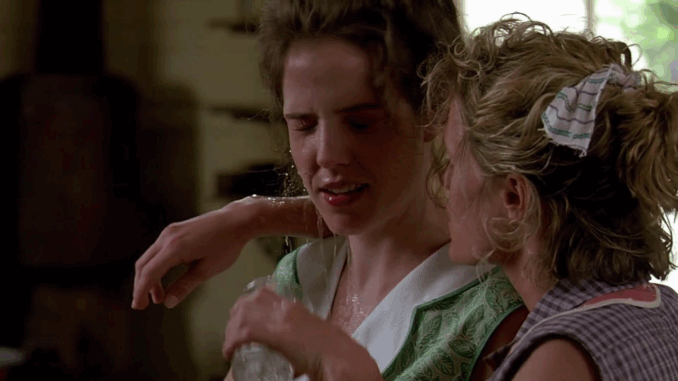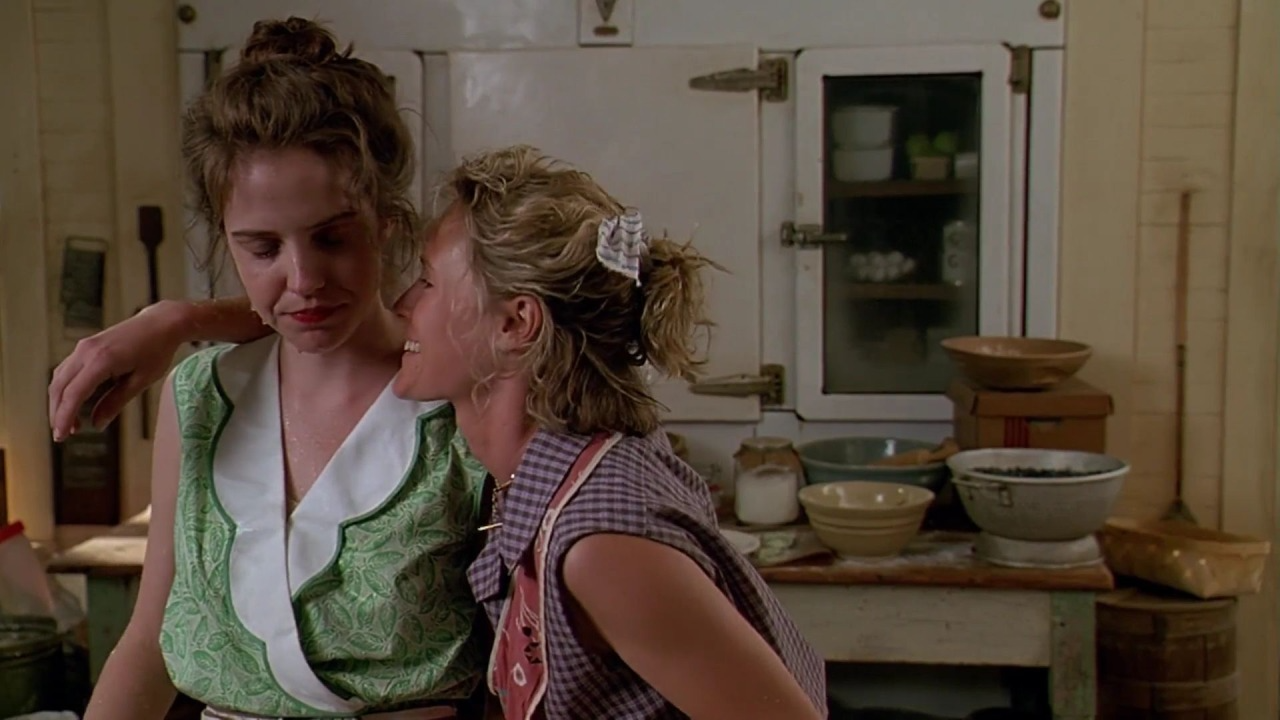
By the end of Fried Green Tomatoes, Evelyn Couch is no longer the insecure, overlooked housewife who stumbled into a nursing home to visit her husband’s aunt and met a talkative stranger. Instead, she is a woman transformed — softer in heart, stronger in will, and fully awakened to herself.
The final act of the film doesn’t showcase dramatic action, but what it gives us is far more powerful: a woman at peace with her power, and finally living a life of her own design.
A Woman Reclaimed
Evelyn’s transformation throughout the film is one of the most inspiring arcs in modern cinema — not because she becomes famous or wealthy, but because she reclaims her inner authority.
At the end of the film:
-
Evelyn no longer seeks permission to speak, to act, or to feel.
-
She visits Ninny out of love, not obligation.
-
She’s no longer afraid to be alone — she’s comfortable with herself, perhaps for the first time in decades.
-
Her appearance is different — more confident, more expressive — but it’s her presence that is most striking. She walks and speaks with ownership of her space.
And what’s most remarkable? She doesn’t achieve this through romantic love or external validation. She finds it through friendship, storytelling, and self-realization.
Her Bond With Ninny: Mirror and Catalyst
By this point in the story, Evelyn’s relationship with Ninny has evolved into something profound. What began as idle conversation has become a soul-level friendship — one rooted in shared pain, wit, and wisdom.
Ninny didn’t just tell Evelyn stories. She offered her a roadmap to emotional survival.
Through the tale of Idgie and Ruth, Evelyn saw her own potential for courage, rebellion, and loyalty. And by helping Ninny in return — caring for her, protecting her — Evelyn discovered her innate strength as a nurturer on her own terms, not just as a wife defined by domesticity.
In helping someone else reclaim dignity and connection, Evelyn reclaimed her own.

The Garden Scene: Symbolism in Bloom
In one of the final scenes, Evelyn finds Ninny outside the nursing home, sitting among flowers. It’s here that we see Evelyn fully centered.
-
She’s no longer nervous or timid.
-
She’s not worried about what others think.
-
She brings kindness, not people-pleasing; love, not dependency.
She also brings a small bag of flower seeds — a gesture rich in symbolism.
Flowers, like Evelyn, bloom late but beautifully. They need care, patience, and sunlight — all things she finally offers herself.
“I think I’ll plant them out back,” she says.
And she’s not talking only about flowers.
Evelyn’s Path Forward: A Life Chosen
The end of Evelyn’s journey doesn’t suggest she has everything figured out. But she no longer needs to. The most important shift has happened: she is choosing her life actively, not passively living the one handed to her.
-
She doesn’t leave her husband — but she no longer molds herself to his expectations.
-
She doesn’t move to Whistle Stop — but she carries its spirit within her.
-
She doesn’t change the world — but she’s changed herself, and that is revolutionary in its own right.
She now lives with clarity, confidence, and perhaps most importantly — joy.
Her Legacy: Evelyn as Quiet Feminist Icon
Evelyn’s arc speaks volumes to a demographic rarely spotlighted in film: middle-aged women in the midst of reinvention.
Her transformation reminds viewers that:
-
You can rediscover yourself at any age.
-
Friendships can be lifelines.
-
Anger, when acknowledged, can be the root of renewal.
-
And self-worth doesn’t need to be shouted — sometimes, it just needs to be planted.
Evelyn is proof that softness and strength are not opposites. That it’s never too late to live a fuller story.
As the credits roll on Fried Green Tomatoes, Evelyn Couch isn’t a different woman — she is more herself than ever before.
And perhaps that’s the most beautiful ending of all.
